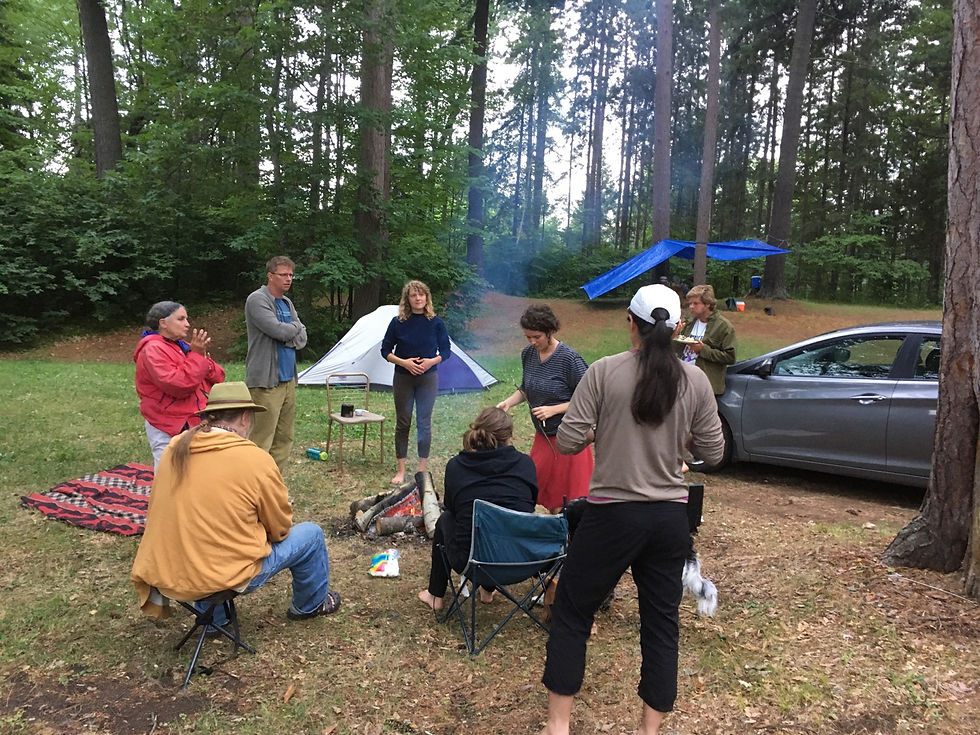This Moment is A Movement
- Maria
- Jun 12, 2020
- 3 min read

Early in the coronavirus crisis I mentioned that we were all practicing movement organizing strategies in staying home and resisting this virus, and that this moment makes it clear that movement organizing is more powerful than the government, the army, or capitalism. From the movement for racial justice in our streets, it looks like we are all learning this together.
If this update seems off topic, I ask you to recall that the Four Necessity Valve Turners cited the UN report on climate change, which we know will more severely impact people of color worldwide. Furthermore, the extraction and transportation of oil in pipelines disproportionately risks land that is sensitive and sacred to indigenous people. Oil refinement and emissions cause chronic respiratory illness, risk factors for deadly covid-19 symptoms, primarily in black and brown communities that have long been recipients of NIMBY uses like industrial and transportation corridors. Anishinaabeg representatives have stated unequivocally that an oil spill in their rice lakes would amount to genocide due to the loss of traditional food, medicine, and income. The Sunrise Movement eloquently explains here how the climate movement and the movement for racial justice cannot be separated.
If this statement seems late, it is because the work on the ground is real for us, located as we are in communities across the United States that are impacted by racism. Every part of this country contributes to the continuation of racism and police violence, even the most rural and remote. Your work for racial justice is needed now and for years to come.
How do I know this? In Cincinnati, the conservative small city where I grew up, a black teen named Timothy Thomas was shot dead as he ran away from the police in April 2001. They were chasing him because they had a warrant for his arrest - for driving without a seatbelt and other misdemeanors - after racially profiling and harassing him for a year. The black community in Cincinnati grieved and rioted for a full week. A curfew was announced and enforced (does this sound familiar?) and when the officers were not brought to justice, local anti-racism organizers and nationally recognized Black entertainers boycotted Cincinnati businesses and cancelling shows and appearances until the next crisis hit the news, on 9/11/2001.
A few short years later a black peer from another city asked me what it was like. I had read every news article I could find, talked about it extensively. As I looked this young man in the eyes, I realized with shame that I had nothing to tell him that he didn't already know. I had all-but forgotten the incident in the comfort and privilege of my life, and as a white teen in the suburbs, I had already learned to expect the news of black death. I was ashamed to look him in the eye, realizing that this life, which could have been his life, had not mattered to me the way it did to him. That is what Black Lives Matter means: that we must cease to find the untimely death of black people normal.
Nineteen years, countless lives, and millions if not billions of dollars spent on police reform and retraining later, what has changed? Locally, the neighborhood where people rioted for Timothy Thomas' life was systematically gentrified by the white business community, erasing black life from downtown. Nationally, years of organizing have built a movement with clear demands inspiring millions of people to protest in the streets or from their homes. But nothing is inevitable. We expect a tide of conservative backlash, if not now then in November. Even if you live in a community too small to have a police force, or too white to make this a popular issue, you can stand up for black lives, you can refuse to let this moment fade into memory, you can make calls and conversation for justice, for defunding or abolishing the police. As the climate movement we are fighting for black lives already, so let's make sure everyone knows that!


Comments